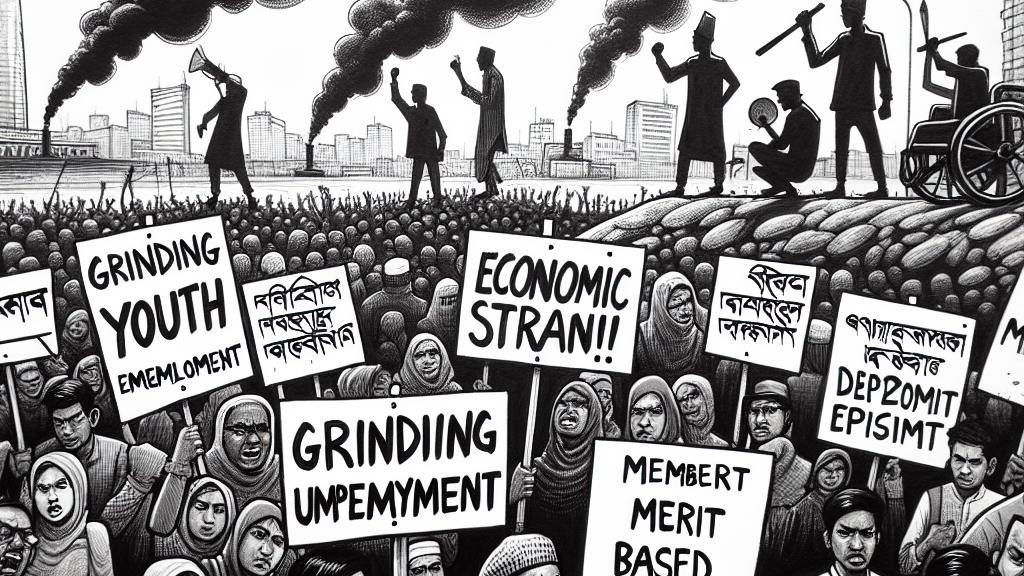Bangladesh Police's Dramatic Decision: Student Leaders Freed Amidst Unrest!
Overview
- Nationwide protests over a contentious job quota system bring unrest in Bangladesh.
- Escalating violence leads to over 200 deaths as police confront demonstrators.
- Supreme Court's ruling reduces job quotas, reflecting shifting governmental policies.

Origins of the Protests
In Bangladesh, discontent bubbled to the surface in July 2024 over a long-standing job quota system that reserves a substantial share of civil service positions for the relatives of veterans of the 1971 independence war. This initiative, intended to honor those who sacrificed for the nation, has faced relentless criticism for perpetuating inequality and limiting opportunities for countless qualified job seekers. Amid soaring youth unemployment and economic strain, the Students Against Discrimination movement launched protests across the country. Energized by frustrations regarding inadequate job prospects and the lack of a merit-based employment policy, young activists took to the streets demanding change and reform.
Escalation of Violence and Government Response
The protests quickly turned violent, with confrontations between demonstrators and law enforcement resulting in a tragic wave of fatalities. Reports indicated that police deployed tear gas, rubber bullets, and even live ammunition to control crowds, leading to a devastating toll of over 200 dead, including both protesters and police. As tensions escalated, six key student leaders were detained, allegedly for their safety, but many viewed this as an attempt to stifle dissent. Amidst growing unrest and public pressure, police announced the release of these activists on August 1, which sparked mixed reactions among the public. Many saw it as a concession to the protesters, while others viewed it as insufficient amidst ongoing turmoil.
A Turning Point: Judicial Reforms and Future Implications
In the wake of violence and protests, the Supreme Court of Bangladesh intervened decisively on July 21, ruling to significantly alter the government job quota system. The court's decision to slash the veterans' quota from 30% to just 5% and increase merit-based hiring to 93% marked a pivotal moment in the country's political landscape. This ruling represented both a significant victory for the protesting students and a potential shift in government policy. While many activists celebrated this landmark decision, they recognize that their fight is far from over. Calls for further reforms continue to resonate, with students and activists determined to ensure that their demands for fairness and equity in job opportunities are not only heard but acted upon in a society grappling with deep-rooted disparities.

Loading...